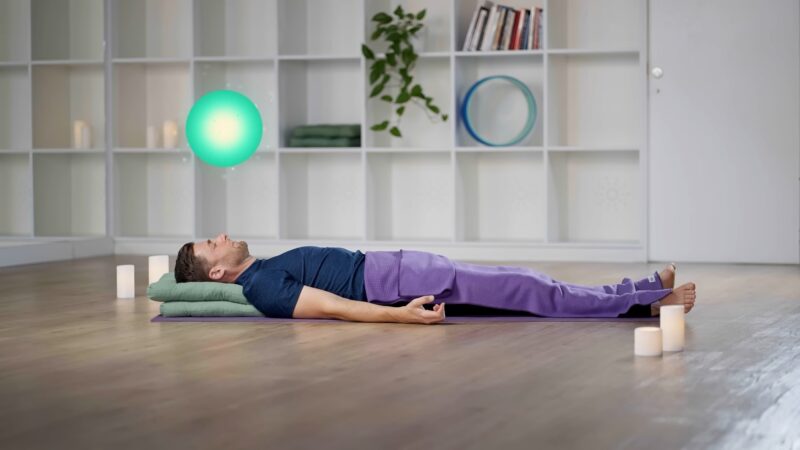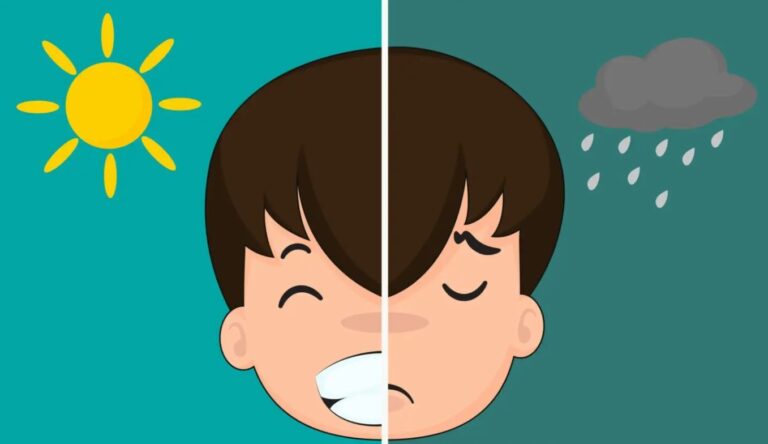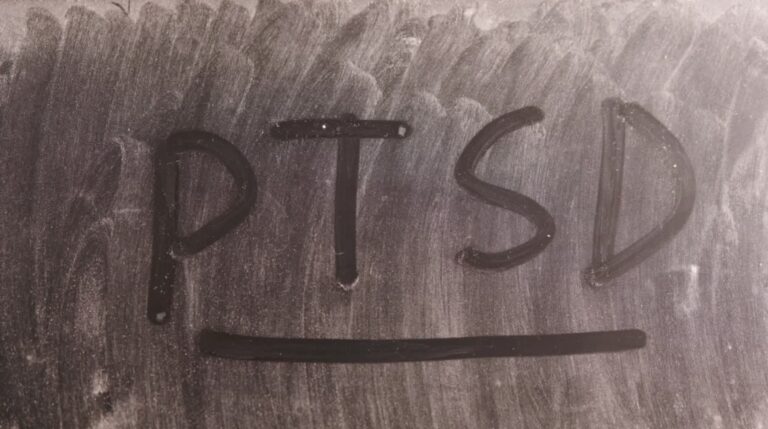When anxiety becomes excessive, persistent, or irrational, it can interfere with your mental health and well-being. You may feel nervous, restless, fearful, or overwhelmed by everyday situations. You may also experience physical symptoms, such as racing heart, sweating, trembling, shortness of breath, or nausea. These symptoms can affect your ability to function normally and enjoy life.
If you are struggling with anxiety, you are not alone. Anxiety disorders are among the most common mental health problems in the world, affecting millions of people of all ages and backgrounds.
The good news is that anxiety can be treated effectively with mental health counseling. You can also try online therapy on Calmerry. In this article, we will explore how mental health counseling can help you overcome this problem.
Why Counseling is Important?
Mental health counseling is a form of professional help that can assist you in coping with anxiety. It involves talking to a trained and licensed counselor, therapist, or psychologist who can help you understand the causes and effects of your anxiety, and provide you with effective ways to manage it.
There are different types of mental health counseling for anxiety, depending on your needs and preferences. Some of the most common ones are:
- Cognitive behavioral therapy (CBT): This is a type of therapy that focuses on how your thoughts, feelings, and behaviors are connected to your anxiety. It helps you identify and challenge the negative and irrational thoughts that trigger and maintain your anxiety, and replace them with more realistic and positive ones.
- Acceptance and commitment therapy (ACT): It teaches you mindfulness skills, which are ways of paying attention to the present moment without judgment or reaction. ACT can help you reduce the impact of anxiety on your life, and increase your psychological flexibility and well-being.
- Exposure therapy: The goal is to help you overcome your avoidance and reduce your anxiety by learning that the feared situations are not as dangerous or harmful as you think and that you can cope with them. Exposure therapy can be done individually or in a group, and can be combined with other forms of therapy, such as CBT or ACT.
- Mindfulness-based cognitive therapy (MBCT): It helps you become more aware of your thoughts, feelings, and bodily sensations, and learn to relate to them in a non-judgmental and accepting way. MBCT can help you cope with chronic or recurrent anxiety, and enhance your emotional regulation and resilience.
Counseling is crucial for managing anxiety because it provides a safe and supportive environment where you can explore your thoughts and feelings. A professional counselor can guide you through various techniques and strategies to handle anxiety effectively.
This process includes identifying triggers, challenging negative thought patterns, and learning coping mechanisms. Counseling also offers an opportunity for personal growth and self-discovery, helping you understand how your past experiences and beliefs influence your current state of anxiety. Through this understanding, you can develop a healthier mindset and improve your overall mental well-being.
Other Helpful Strategies
There are some self-help strategies that you can use to complement therapy and reduce your anxiety levels.
| Technique/Practice | Description | Key Benefits |
|---|---|---|
| Deep Breathing | A technique that involves focusing on taking slow, deep breaths. It is a practice found in ancient techniques like yoga and is used in modern stress relief practices. | Stimulates the parasympathetic nervous system, promoting calmness and relaxation. Changes the body’s response to stress. |
| Exercise | Physical activity that can range from walking, jogging, cycling, swimming, to dancing. It’s about choosing an activity that you enjoy. | Releases endorphins (feel-good chemicals), improves self-esteem, enhances social interactions, and helps in distracting from worries. |
| Progressive Muscle Relaxation | Developed by Dr. Edmund Jacobson in the 1920s, this involves tightening and relaxing different muscle groups in the body. | Reduces anxiety by leading to physical relaxation which in turn leads to mental calmness. |
| Healthy Diet | Eating a variety of foods like fruits, vegetables, whole grains, lean proteins, and healthy fats. Limiting substances like caffeine, alcohol, nicotine, or drugs. | Balances blood sugar levels affecting mood and anxiety. Certain foods like bananas and dark chocolate can boost mood by affecting serotonin and endorphin levels. |
| Improve Your Sleep Patterns | Practices like having a regular sleep schedule, avoiding stimulants before bed, creating a comfortable sleeping environment, and avoiding screens or stimulating activities before sleeping. | Essential for restoring energy, memory, and mood. Poor sleep can worsen anxiety and impair performance. As per Dr. Dimitriu of Menlo Park Psychiatry and Sleep Medicine. |
According to Dr. Dimitriu the founder of Menlo Park Psychiatry and Sleep Medicine:
“Anxiety is frequently connected to sleeping problems. Excess worry and fear make it harder to fall asleep and stay asleep through the night. Sleep deprivation can worsen anxiety, spurring a negative cycle involving insomnia and anxiety disorders.”
How to Choose the Right Therapist?
There are many factors to consider, such as your needs, preferences, goals, budget, and availability. Here are some steps to help you find the best therapist for you:
- Self-Assessment: Before beginning your search, take some time to reflect on what you’re seeking from therapy. Consider your primary concerns, how they affect your life, and what you hope to achieve through therapy. Think about any preferences you might have regarding the therapist’s background, specialty, or approach.
- Research and Recommendations: Start by researching therapists online or seeking recommendations from trusted sources like your doctor, friends, or family. Utilize online directories or mental health platforms to find therapists who specialize in your area of need. Look for therapists who have experience in treating issues similar to yours.
- Consider Logistics: Factor in logistical elements such as location, session availability, and whether the therapist accepts your insurance or offers a sliding scale for payment. Accessibility is key, so consider if you prefer in-person sessions or if you’re open to virtual therapy.
- Initial Contact and Consultation: Once you have a list of potential therapists, reach out to them for an initial consultation. This is usually a brief session where you can discuss your needs and get a feel for the therapist’s style and approach. Ask about their experience, methods, and how they typically work with clients.
- Evaluate Compatibility: After consultations, evaluate how you felt with each therapist, and later share it with your therapist. Consider their communication style, empathy, and understanding of your issues. Trust your gut feeling about whether you felt comfortable and heard.
- Consider Therapy Approaches: Be informed about different therapeutic approaches and consider which one aligns with your needs. Therapists may use methods like Cognitive Behavioral Therapy (CBT), Psychodynamic Therapy, Humanistic Therapy, etc. Each has its strengths and caters to different needs.
- Check Credentials and Experience: Ensure the therapist is licensed and check their professional background. Experience and specialized training in areas relevant to your concerns are important factors.
- Ask About Treatment Plans: During your consultation, inquire about how the therapist plans to address your issues. A good therapist should be able to provide a rough roadmap of your treatment plan.
- Be Open to Change: If, after a few sessions, you feel that the therapist is not a good fit, it’s okay to consider looking for another one. Therapy is a personal experience, and the right match is crucial for effective treatment.
- Seek Feedback and Reflect: After a few sessions, reflect on your progress. Are you comfortable with the therapist? Do you feel like your concerns are being addressed? It’s okay to seek feedback from close friends or family about any changes they’ve noticed or to discuss your feelings with the therapist.
Therapy is a collaborative and dynamic process, and you can always change your therapist or treatment if you are not satisfied or comfortable with them. The most important thing is to take care of your mental health and seek help when you need it.
FAQs
What are the 4 C’s of Anxiety?
The 4 C’s of anxiety are cognitive symptoms, physical symptoms, emotional symptoms, and behavioral symptoms. These categories encompass the various manifestations of anxiety, affecting a person’s thoughts, body, emotions, and actions.
What is the Most Effective Method for Anxiety?
CBT is widely considered one of the most effective methods for treating anxiety. It focuses on identifying and challenging negative thought patterns and behaviors to alter the way one feels and reacts to anxiety-inducing situations.
How Many Counseling Sessions for Anxiety?
The number of counseling sessions required for anxiety varies per individual. It depends on the severity of the anxiety, the specific therapy used, and the individual’s response to treatment. Typically, a course of CBT for anxiety might range from 5 to 20 sessions.
How Effective is CBT for Anxiety?
CBT is highly effective for treating anxiety. It helps in changing negative thought patterns and behaviors associated with anxiety, providing lasting relief for many. Its effectiveness is well-documented through various studies and clinical practices.
Conclusion
The crucial part is to ask for help instead of struggling with this issue and think that it will go away on its own. A common mistake is when people avoid looking for an expert until they start facing much more serious side effects.
Keep in mind, that you should not be alone in this battle, and the best solution is to look for help from professionals like SeasonsMalibu.com with proper skills and experience.

















